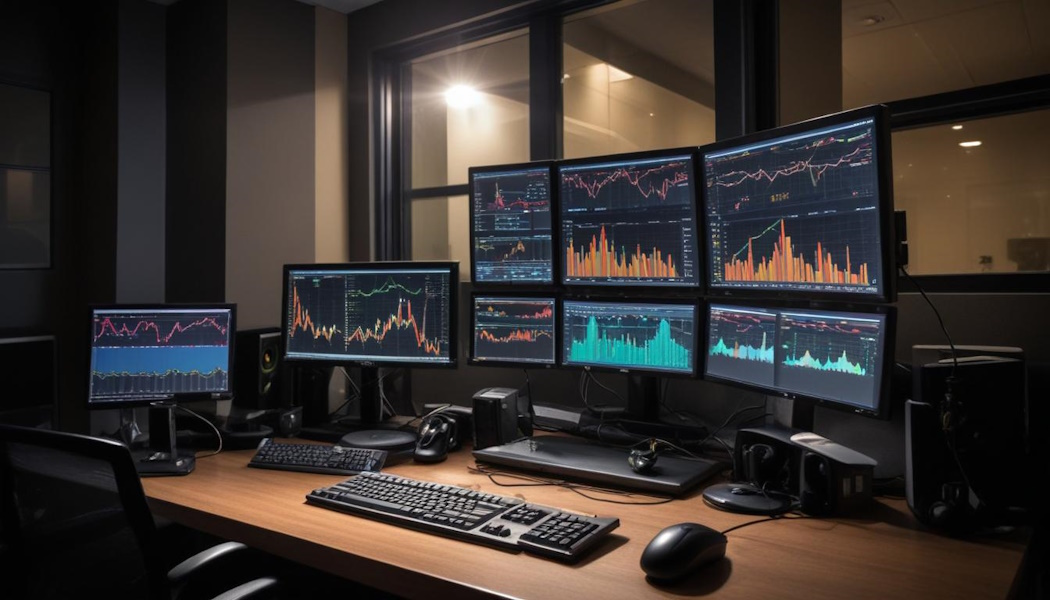


Welcome to SpasticPuppy Trader's Reference, a site designed by trading newbies for other trading newbies! We hope this site provides valuable information to start you on your trading journey.

|
Day trading refers to the buying and selling of securities within a single trading day, usually taking advantage of small price movements. Traders who engage in day trading typically close all positions by the end of the trading day to avoid overnight risks. Swing trading, on the other hand, involves holding positions for several days or even weeks, aiming to capture short to medium-term gains from expected price moves. Unlike day traders, swing traders are less focused on daily price fluctuations and more on underlying trends. Penny stocks are low-priced shares of small companies, often traded over-the-counter rather than on formal exchanges. They can be highly volatile and are generally considered high-risk investments. Trading differs from investing primarily in duration and intent: trading usually involves short-term strategies to earn quick profits through the buying and selling of stocks or other assets, while investing is a long-term approach focused on gradually building wealth by holding a diversified portfolio of securities, such as stocks and bonds, for extended periods to benefit from appreciation and dividends. |
|
To be an effective day trader or swing trader, several essential tools are required. First and foremost, a robust brokerage account is necessary, as it provides access to the markets and offers trading platforms to execute buy and sell orders quickly. Brokers such as TD Ameritrade, Interactive Brokers, and eToro are popular choices, as they offer comprehensive services and competitive fees. In addition to a brokerage account, live streaming software, such as TradingView or Thinkorswim, is crucial for real-time market data and technical analysis. These platforms enable traders to monitor price movements and chart patterns with minimal delay. Screening tools are also vital; they assist in filtering potential trades based on specific criteria such as price, volume, and technical indicators. Examples of such tools include Finviz and Stock Rover. Additionally, a reliable internet connection and a computer or trading device with adequate processing speed are necessary to ensure seamless trading experiences. Together, these tools form the foundation for making informed trading decisions and achieving success in the day and swing trading arenas. |

|

|
A casual trader typically engages in buying and selling securities sporadically, primarily for personal investment rather than as a primary source of income, while a professional day trader executes trades frequently, often daily, with the intention of making a profit through market fluctuations. Legally, casual traders are taxed on capital gains, with short-term gains taxed at ordinary income rates and long-term gains at reduced rates. Professional day traders, on the other hand, may qualify for trader tax status, allowing them to treat trading as a business, which provides benefits like deducting business expenses and potentially marking securities to market for tax purposes. When it comes to structuring a trading business, operating as an individual means simplicity but potentially higher taxes. An LLC offers liability protection and can opt for S corporation status to reduce self-employment taxes; however, it involves more administrative work. An S corporation can allow traders to draw salaries and pay dividends, offering tax optimization but also requiring precise record-keeping and compliance. To maximize profits and minimize tax liability, individuals should maintain meticulous records, consult with a tax professional to choose the appropriate business structure, and take advantage of available deductions and tax treatments tailored to trading activities. |
The intent of this site is to provide basic education for those interested in day trading or swing trading, either as a hobby or as a secondary or primary source of income. Links to external websites are provided to expose you to opportunities for self-directed training, formal trading classes, legal and tax solutions, and other trading related information. If there's something you'd like to see on this site, please use the email link provided on the Contact page.
NOTE: Day trading, swing trading, and options trading involve significant risks and may not be suitable for all investors. These forms of trading require substantial knowledge and experience, as they are susceptible to high market volatility and rapid fluctuations in asset prices. Participants in these markets must be prepared for the possibility of substantial losses, even beyond their initial investments, particularly when leveraging options and margin accounts. It is crucial to conduct thorough research, use risk management strategies, and understand that past performance does not guarantee future results. Additionally, traders should be aware of and comply with applicable financial regulations and seek professional advice if necessary.
Images Designed by Freepik.